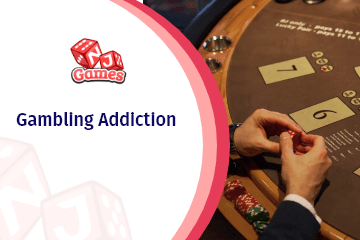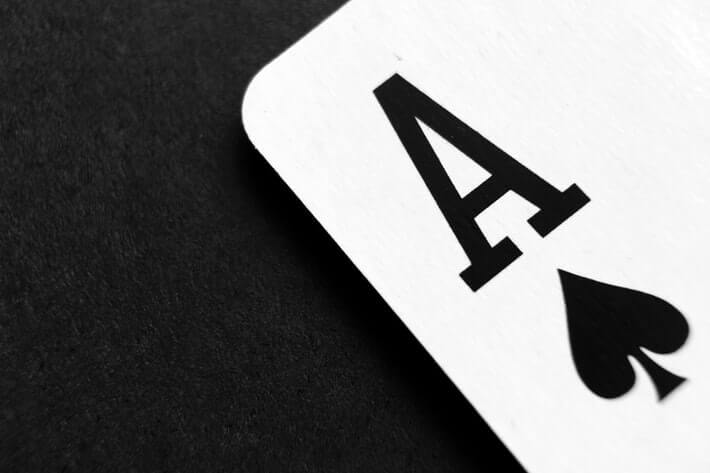The pandemic heralded an unprecedented economic downturn coupled with lockdown measures that transformed the lives of millions across the globe. To ease the pain or simply pass the time, many turned to compulsive gambling. And suddenly, gaming sites became an ideal tool for nurturing a devastating gambling addiction.
With so many people turning to virtual life, online casinos weren’t only becoming more accessible but more socially acceptable as well. While this trend helped fuel the financial prosperity of betting platforms, it didn’t exactly translate into players hitting the jackpot. Our list of statistics offers some insight into today’s alarming gambling habits.
1. Gambling among college students is on the rise.
(CollegeGambling.org, The American Journal on Addictions)
Researchers found that 6% of American college students suffer from a serious gambling problem. The good news is that most of these students don’t join the compulsive gambler category as they get older and more mature. According to CollegeGambling.org, only 1% of the US adult population has a gambling disorder.
Some of the main causes of gambling addiction among college students include everything from boredom and peer pressure to more serious issues like problems at home and low self-esteem.
According to a recent study, 61.6% of undergraduate students who gamble regularly online are pathological gamblers. Meanwhile, 23.9% of infrequent online gamblers have a gambling problem. The connection between online gambling and addiction problems among young people is a growing concern.
2. There is a connection between problem gambling and domestic violence.
(Georgia Department of Behavioral Health and Developmental Disabilities)
If you’re constantly planning your next bet or feeling irritated when you have to cut back on your gambling, you’ve probably asked yourself an obvious question: do I have a gambling addiction? While these are some of the more obvious signs and symptoms of compulsive gambling, problem gamblers also have a negative impact on the people close to them. According to researchers, nearly 25% of problem gamblers engage in spousal abuse. Another 15% admit to engaging in child abuse as well. 37% of the women who experienced intimate partner violence said there was a connection between their spouses’ gambling disorder and the assaults.
3. Gambling addiction statistics highlight the connection between criminal activity and compulsive gamblers.
The Recovery Village, a rehab center for individuals suffering from substance abuse and mental health disorders, published some alarming data. Namely, more than two-thirds of compulsive gamblers have committed crimes directly related to gambling. A steep percentage (80 – 90%) of those who attend Gamblers Anonymous meetings say they engage in illegal activities to fund their gambling.
Gamblers with addiction problems are arrested seven times more often than those who don’t gamble. The criminal activity related to problem gambling ranges from fraud, forgery, embezzlement, burglary, and petty theft. Most of these crimes are committed in order to get money to pay off gambling debts.
4. Nevada is the most gambling-addicted state in the US.
The US is dotted with gambling addiction treatment centers that deal with both mild and more severe cases. A study by WalletHub, thoroughly examined gambling trends in fifty states, with a particular focus on problem gambling. The data, based on 21 key metrics ranging from lottery sales per capita to the presence of illegal gambling operations, reveals that Nevada is the most gambling-addicted state, followed by Mississippi and South Dakota. Meanwhile, Maine, North Carolina, and Utah are at the bottom of the table.
The study also exposes the economic impact of problem gambling. It shows that American consumers experience over $100 billion per year in gambling losses. In addition, a regular male problem gambler accumulates between $55,000 and $90,000 in debt, while females pile up around $15,000. Individuals suffering from gambling addiction have a tendency to pile up even more debt as their disorder worsens.
5. Restrictions related to the Covid-19 pandemic are fuelling problem gambling.
(Journal of Addiction Medicine)
A growing body of research shows that the online gambling industry profited heavily due to Covid-19 restrictions. With people having to stay at home and isolate, spending time on gambling sites became more than a pastime and only fueled problem gambling.
Amid widespread loneliness, boredom, anxiety, depression, and stress, the gambling industry was cashing in. One recent study showed that the condition of patients on a gambling addiction therapy at the University Hospital of Bellvitge, Barcelona, worsened due to confinement; 12% reported that their gambling got worse, 19% were completely abstinent, 46% showed anxiety symptoms, and 27% were depressed.
6. Statistics on the treatment show that only around 5% of those who suffer from problem gambling seek therapy.
The number of people calling the gambling hotline is on the rise. Unfortunately, even though more than 60% of compulsive gamblers recognize the problem, the percentage of those who start therapy is much lower – around 5%. The reason behind this disparity might lie in an outdated belief that compulsive gambling isn’t a “real” addiction.
Gambling addiction treatment should be, however, regarded as a necessary step on the road to recovery. Those who wonder how to stop gambling should consider joining mutual aid groups such as Gamblers Anonymous. You can also try cognitive behavioral therapy or a motivational interviewing approach. As more and more states legalize online gambling, hotlines are on fire, with the number of calls almost doubling in Michigan.
7. Substance abuse rate among problem gamblers
(PsychGuides.com, The Recovery Village)
Statistics show a strong link between drug abuse and gambling disorders. The latter occurs with other mental health disorders as well, most notably depression. Of course, when coupled with drug abuse, problem gambling also leads to criminal activity. Users may also gamble to cover the cost of a drug addiction, which subsequently leads to a worsening gambling addiction.
According to research by PsychCentral, the rate of compulsive gambling among cocaine users is five to seven times higher than the general population. When it comes to alcohol, over 73% of those diagnosed with a gambling disorder abuse alcohol as well, according to PsychGuides.com research.
FAQ:
Is gambling a mental illness?
Gambling by definition is the practice of risking money or other stakes while playing games. It doesn’t have to be harmful if done in moderation. However, a gambling disorder is an impulse-control disorder that affects mental health. According to the American Psychiatric Association, compulsive gambling involves repeated problematic gambling behavior that causes distress.
How do you fix a gambling addiction?
Realizing that you have a problem is the first step. The next is to seek professional help. Calling a local gambling hotline is a good source of information, as you’ll be informed about the different types of therapy.
Can a gambler ever stop?
Of course, provided that they seek professional help, recognize that they have a problem, join mutual aid groups, and work on your issues. People around a gambler should have realistic expectations and realize they cannot force anyone to change.
What causes gambling addiction?
There is no single cause. Rather there are four categories of inter-related causes: 1) biological causes, 2) psychological causes, 3) socio-cultural causes, and 4) spiritual causes.
Why do I keep losing money gambling?
If you’re unable to control your losses, you might have a gambling problem. Having a strategy and a strict spending limit are a must if you want to stay in control of your game.




